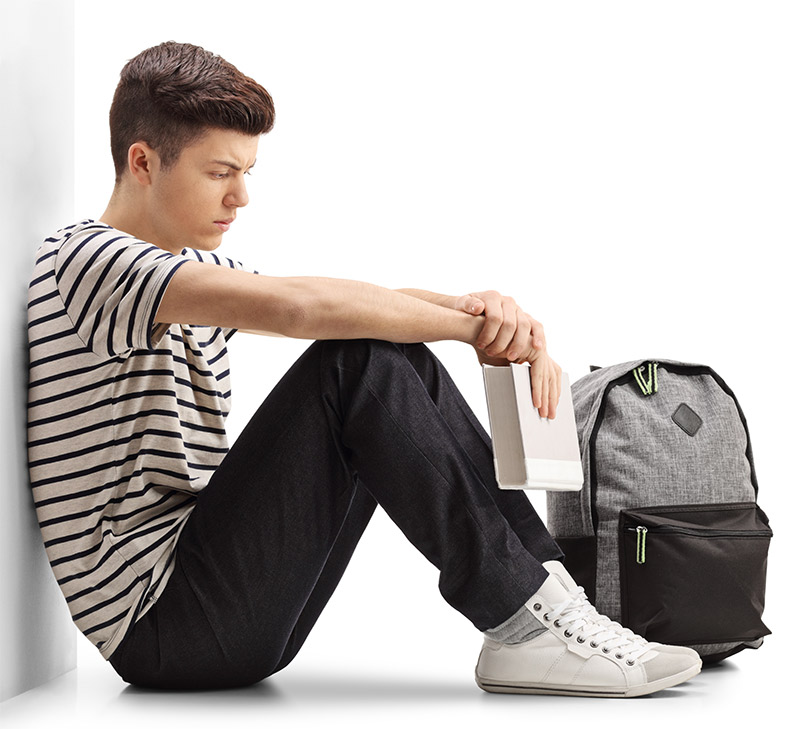
Think your teenager might be using drugs or drinking?
Here are tips on how to find out and a list of signs and symptoms to look for.
Attitudes
- Sudden changes in mood
- Loss of interest or lethargic in school and activities
- Defensiveness when the topic of alcohol or other drugs is raised
- Making pro-drug statements
- Lack of response to concern expressed by teachers
- Disrespect/defiance toward teachers, rules or regulations
- Generally defensive
- Overhearing a student describing or “joking” about another student’s alcohol or other drug use
- Unconcerned about consequences
Academics
- Sudden lack of interest in class material
- Undisciplined—doesn’t get things completed on time or as specified
- Sudden drop in grades or achievement levels
- Sudden academic failure
Appearance
- Wearing sunglasses in class
- Staggering gait
- Inappropriate clothing for the weather
- Redness around the nose and mouth
- Chronic runny nose or cold-like symptoms
- Neglect of appearance—e.g. poor hygiene, wearing same clothes frequently
- Sweet, burnt odor on student
- Dilated or constricted pupils—red or glassy eyes
- Frequent use of eye drops
- Marked change in weight or appetite
- Burns on hands or clothing
- Drug paraphernalia observed—e.g. rolling papers, bongs, roach clips
- Persistent deep, dry or hacking cough
- Stumbling, confusion or disorientation
Behaviors
- Skipping classes or entire days of school
- Patterns of lateness especially in the mornings or after lunch
- Sleeping/nodding off in class
- Wandering aimlessly in hallway or on school grounds
- Difficulty with short-term memory or blackouts (period of memory loss)
- Dramatic change in behavior—suddenly belligerent or withdrawn
- Frequent trips to the phone or bathroom
- Frequent visits to school nurse for various minor complaints
- Excessively active, restlessness, trouble sitting still
- Hanging out with known drug users
- Bringing drinking containers to class (many times alcohol is placed in regular drink bottles)
- Drug slang and phrases written on notebooks or other materials
- Dropping out of sports or other activities
- Insomnia
Note
The presence of any one of these signs does not necessarily indicate a problem with alcohol or other drugs, but if several signs are present, it suggests that a problem may be occurring that warrants further attention.
Who is at higher risk for substance abuse?
While no student is immune to the dangers of alcohol and other drugs, certain students carry greater risks of substance abuse. This includes: students who are children of substance abusing parents (statistically one of every five students); students who started their alcohol/drug use at an 15 or earlier; students experiencing transitions such as starting a new school or relocation to a new community; students with drug using peers; students who are not bonded to school; and students who have difficulty regulating their emotions and controlling their behavior.
